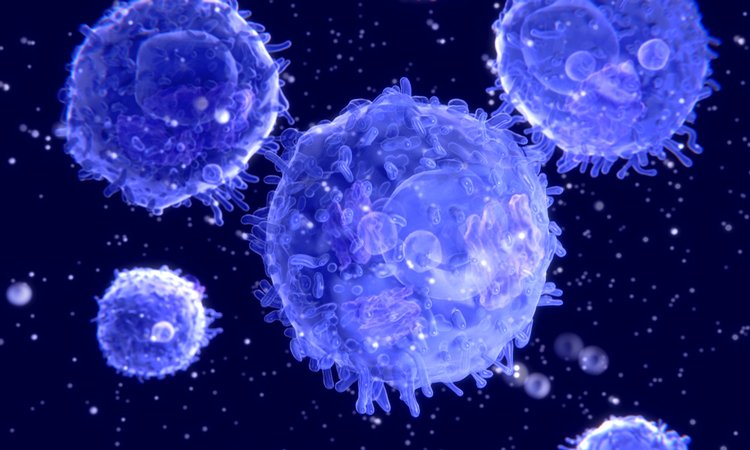Researchers discover novel cancer immunosuppression mechanism
Posted: 30 October 2020 | Hannah Balfour (Drug Target Review) | No comments yet
According to the study, the transcription factor IRF4 drives T cell differentiation and immunosuppression in multiple human cancers.


By combining flow cytometry, single-cell and bulk RNA sequencing and positron emission tomography researchers reveal the mechanisms responsible for tumour immunosuppression. The findings could contribute to the development of novel cancer immunotherapies.
Regulatory CD4+ T cells (Tregs) are responsible for maintaining immune homeostasis and preventing autoimmunity by inhibiting effector T cells. Tregs achieve this using multiple mechanisms, eg, by expressing cell-surface inhibitors, producing inhibitory cytokines, depletion of IL-2 or direct cytotoxicity, to name a few.
Cancer is known to hijack the immunosuppressive effects of Tregs to create a tumour microenvironment that supports tumour progression. Tregs have also been shown to be enriched in many tumours. Despite the success of clinical studies depleting Tregs to drive tumour regression, the adverse effects that these treatments can cause (eg, autoimmunity and allergies) make it important to identify molecular markers associated exclusively with tumour-linked Tregs so they can be targeted specifically.
In their study, Alvisi et al. studied the molecular mechanisms of immunosuppression in Tregs taken from chemotherapy-naive non-small cell lung cancer (NSCLC) patients. To do this they used a 27-colour flow cytometry panel, encompassing markers of memory and effector T cell differentiation, activation, metabolic activity and exhaustion, as well as Treg markers. The authors also used single-cell and bulk RNA sequencing and fluorodeoxyglucose uptake in positron emission tomography.
They report that when the T cells were profiles using high-dimensional single-cell profiling, the transcription factor IRF4 was specifically expressed by a subset of intratumoural Tregs with superior immunosuppressive activity. According to the study, these IRF4+ Tregs expressed a vast array of immunosuppressive molecules, compared to their counterparts not expressing IRF4. The presence of these IRF4+ Tregs also correlated with multiple exhausted subpopulations of T cells.
Using transcriptomic and epigenetic data, the team were able to demonstrate that IRF4 alone, or in combination with its partner BATF, can control the expression of a molecular programme responsible for immunosuppression in tumours.
In a murine model, deletion of IRF4 exclusively in Tregs resulted in delayed tumour growth. Correspondingly, an abundance of IRF4+ Tregs is associated with poor prognosis in patients with various cancers. Thus, the team concluded that a common mechanism may be the cause of immunosuppression in the tumour microenvironment, irrespective of the tumour type, and therefore could be targeted by novel therapeutics.
The study was published in The Journal of Clinical Investigation.
Related topics
Analytical techniques, Disease research, Drug Targets, Flow Cytometry, Immunology, Oncology
Related conditions
Cancer, Non-small cell lung cancer (NSCLC)


